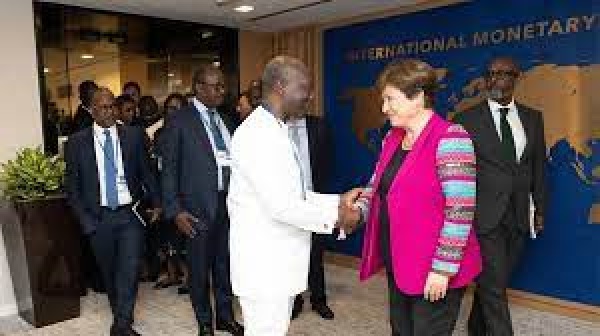
US$ 809m Bond swap: Engage, build investor confidence — experts
Capital market experts have asked the government to be transparent as it engages investors to restructure dollar denominated bonds totalling about US$809 million.
The experts also urged the government to extensively engage these investors before officially announcing any debt restructuring offer.
This, they said, would help avoid the situation the government found itself in when it announced the Domestic Debt Exchange Programme in December.
The government is seeking the full participation from all investors in its dollar denominated bonds to restructure debts totalling about US$809 million.
The successful completion of this aspect of the domestic debt exchange programme is very crucial to the country ‘s quest to restore debt sustainability which is a critical component of the IMF programme.
Sources close to the arrangement have told the Graphic Business that the government in the coming days would submit an official invitation to all investors in its dollar denominated bonds to voluntarily participate in this debt exchange programme.
One of the sources indicated that anything short of full participation would make the country ineligible for any form of assistance, noting that there can be no exception.
A draft memorandum of the invitation cited by the Graphic Business shows that the government intends to swap two dollar denominated bonds which are expected to mature in November 2023 and November 2026, respectively with new bonds that would mature in four and five years’ time.
The new bonds will also come with a reduced coupon rate of 2.75 per cent and 3.25 per cent. This compares to the 4.75 per cent and 6 per cent offered for the old bonds.
The memorandum noted that the invitation to exchange would not embed any principal haircut on eligible bonds.
It also pointed out that the Republic, in its sole discretion, may settle the eligible bonds in full or in part and that the eligible holders’ subscription to receive the new Bonds is voluntary.
Domestic debt exchange
Ghana’s economy has been battling with severe challenges in the last two years, with inflation hitting a 22-year high of 54.1 per cent in December 2022, and an unsustainable public debt of GH¢575.7 billion, which represents 93.5 per cent of the country’s GDP.
In July 2022, the government formally approached the IMF for a fund programme and was able to secure a staff level agreement in December. An Executive Board level approval which would pave the way for the disbursement of the US$3 billion support, was, however, dependent on the country’s ability to restructure both its domestic and external debt.
The Domestic Debt Exchange Programme which was announced by the government in December was met with stiff opposition from stakeholders but after months of engagements, the government was finally able to reach an agreement with its domestic debtors.
The DDEP saw the government swap a total of GH¢82 billion of old bonds for 12 new ones at a reduced coupon rate and longer tenor.
The government has however indicated in recent times that the domestic debt restructuring was still not yet over as it seeks to restructure cocoa bills and US dollar denominated bonds.
At the end of 2022, the country’s total domestic debt was around GH¢259 billion and so far the government has been able to restructure GH¢82 billion, which means that over 50 per cent of the domestic debt is yet to be restructured.
External debt restructuring
On the external side, following the formation of the Creditor Committee, co-chaired by China and France on May 12, the government has begun negotiations with its external bilateral creditors to restructure debts totalling $5.4 billion.
It is also in negotiations with its commercial creditors to restructure its $14-billion debt.
The government is targeting an external debt relief of $10.5 billion between 2023-2026 through the external restructuring.
Under the IMF programme, the government is seeking to reduce its total public debt-to-GDP ratio to below 55 per cent.
A bulk of the fiscal adjustments required to achieve this target is expected to come from debt restructuring.
The Ministry of Finance has since the beginning of the debt exchange exercise noted that the alternative to the debt exchange would be a far worse economic crisis, with protracted closure from international markets and further domestic economic instability both for the real economy and the financial sector.